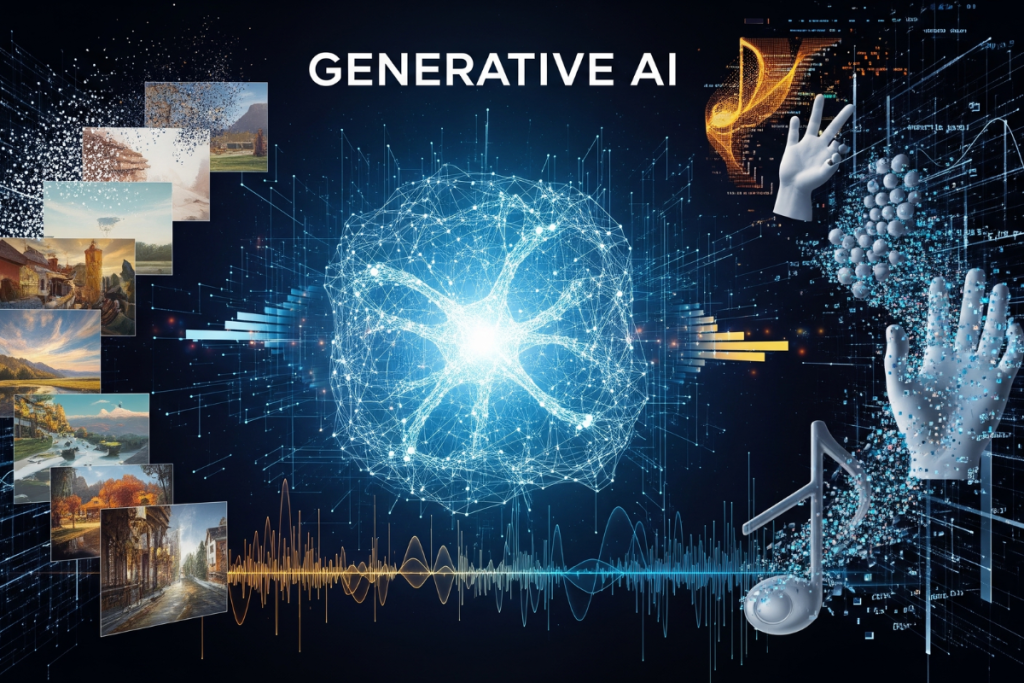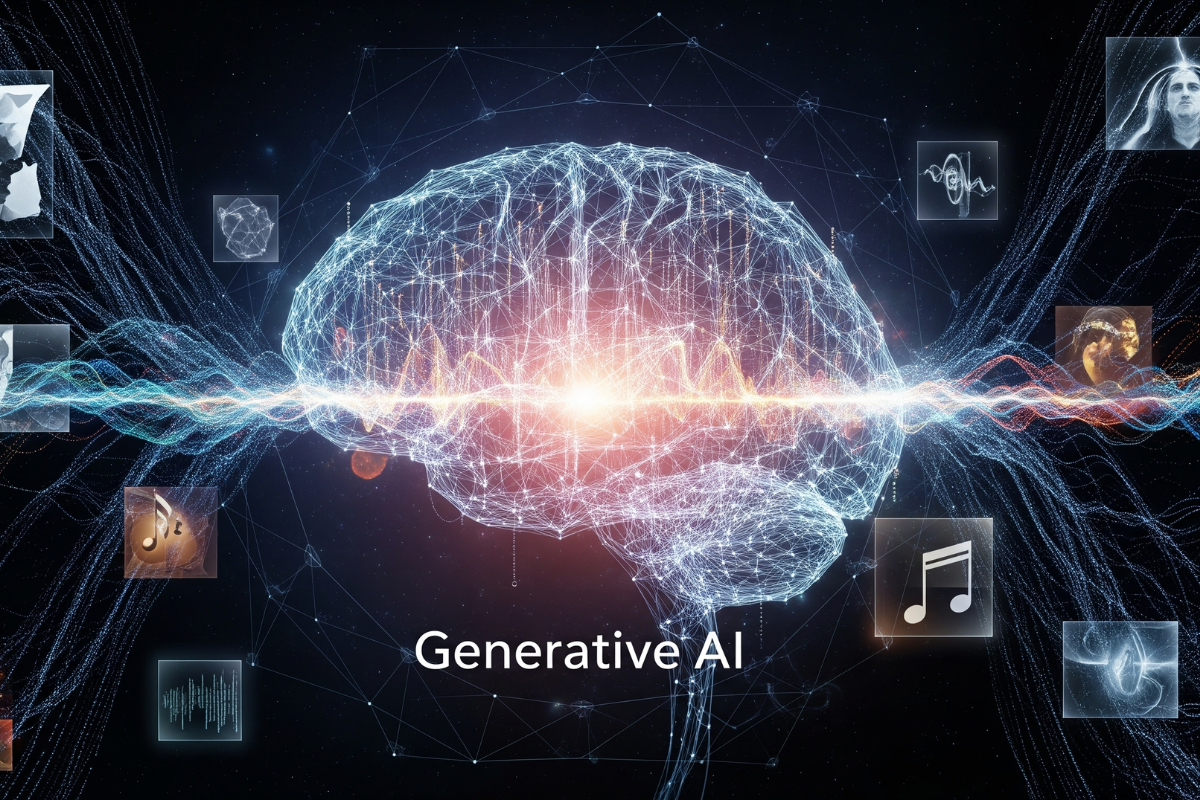Generative AI: What You Need to Know
Artificial intelligence (AI) has been part of our lives for longer than many of us realise. Recommendation engines on Netflix, navigation apps like Google Maps, and even fraud detection systems in banking are all powered by AI. But in the last couple of years, a new kind of AI has captured global attention—generative AI. Unlike traditional AI that analyses data to make predictions, generative AI creates. It can write essays, design artwork, compose music, generate computer code, and even simulate human conversation.
In Singapore, a nation pushing ahead with its Smart Nation vision, generative AI is already making waves across industries, schools, and even households. For many, the technology may still feel futuristic, but in reality, it is increasingly woven into daily life here.
So, what exactly is generative AI, why does it matter for Singapore, and how can individuals and businesses make sense of its possibilities and pitfalls? Let’s break it down.
What Exactly Is Generative AI?
At its simplest, generative AI refers to artificial intelligence systems capable of creating new content. These models are trained on vast amounts of existing data—be it text, images, or audio—and then use that knowledge to produce fresh outputs that resemble human-made creations.
Traditional AI is usually predictive: for example, it might forecast the weather, predict traffic flow, or recommend a stock based on past patterns. Generative AI, on the other hand, is creative: it can generate a poem, design a logo, or even simulate a conversation with you.
Some well-known examples include:
- ChatGPT: A text-based AI that can write articles, answer questions, or even draft an email.
- DALL·E and MidJourney: Image generation tools that can turn written prompts into digital art.
- GitHub Copilot: An AI assistant for programmers that suggests lines of code.
In Singapore, schools are experimenting with ChatGPT for education, marketing firms are testing AI for ad copywriting, and local artists are dabbling in AI-powered visuals for exhibitions. Generative AI is no longer a novelty—it is a tool being integrated into professional and creative life.
Why Generative AI Matters in Singapore
Singapore has long positioned itself as a hub for innovation and technology, and generative AI is a natural fit for the country’s ambitions. The government has been vocal about embracing AI responsibly, as seen in initiatives like the National AI Strategy (NAIS) 2.0, launched in 2023. This updated roadmap emphasises building AI capabilities not just within enterprises but across society.
Here’s why generative AI is particularly relevant for Singapore:
- Boosting Economic Competitiveness
From financial institutions in Raffles Place to healthcare clusters in Novena, AI adoption is already underway. Generative AI offers efficiency gains in areas like compliance checks, patient record management, and even automated legal research. These productivity boosts matter greatly in a nation where manpower is limited and efficiency is prized. - Transforming Education
Singapore’s education system is world-renowned, and AI is beginning to shape how students learn. Teachers are experimenting with generative AI to design lesson plans or create practice quizzes, while students use it for brainstorming essays or understanding complex topics. The Ministry of Education has emphasised responsible use, ensuring AI complements rather than replaces critical thinking. - Empowering Creativity and Culture
Singapore’s arts and design communities are increasingly curious about AI. The National Gallery, for instance, has hosted exhibitions exploring art and technology. Generative AI opens doors for local creatives to experiment with hybrid works that combine human expression with machine-generated visuals or sounds. - Supporting Smart Nation Goals
As Singapore continues its digital transformation, generative AI could play a role in everything from urban planning simulations to public service chatbots that provide more natural, empathetic responses to citizens.
In short, generative AI is not just another passing trend—it aligns closely with Singapore’s economic strategies, social goals, and cultural ambitions.
How Singaporeans Are Already Using Generative AI
For many individuals, generative AI has quietly become part of daily routines. Here are some ways Singaporeans are tapping into the technology:
- Work Productivity: Office workers use AI to draft reports, summarise meeting notes, or generate PowerPoint slides in minutes.
- Small Businesses: Entrepreneurs use tools like Canva’s AI-powered design features to create logos, social media posts, and even product descriptions without hiring a full creative team.
- Education and Learning: University students lean on AI to clarify difficult concepts, check grammar, or get inspiration for essays—though plagiarism concerns remain.
- Lifestyle Planning: From suggesting dinner recipes based on what’s in the fridge to crafting personalised itineraries for a weekend staycation, generative AI apps are becoming lifestyle assistants.
- Programming and Tech Work: Local coders use AI to debug or auto-generate scripts, saving hours of work.
These examples highlight that generative AI is not some distant future technology—it is already reshaping how Singaporeans live, learn, and work.
Opportunities: What Generative AI Can Unlock
The potential upside of generative AI is enormous, especially for a country like Singapore that thrives on innovation.
- Innovation Across Industries
Generative AI could accelerate breakthroughs in biomedical science, finance, logistics, and even sustainability. For instance, researchers in Singapore could use AI to model new drug compounds or simulate the impact of climate policies. - Levelling the Playing Field
For small and medium enterprises (SMEs), generative AI can act as a force multiplier, enabling them to access high-quality design, marketing, and analysis tools without massive budgets. This could help more local businesses compete on the global stage. - Personalised Services
Imagine healthcare that delivers tailored advice based on your unique profile, or education platforms that adapt lessons to each student’s learning style. Generative AI makes such personalised experiences more feasible. - Global Positioning
With its strong governance and reputation for trust, Singapore could become a model for responsible AI use worldwide—attracting international talent, investment, and partnerships.
Risks and Challenges to Watch Out For
Of course, with great potential comes significant risk. Generative AI is not without its challenges, many of which are particularly relevant in Singapore’s context.
- Misinformation and Fake Content
Generative AI can produce convincing but false information, from deepfake videos to fabricated news articles. In a country that values social harmony, unchecked misinformation could have serious consequences. - Data Privacy Concerns
Many AI systems rely on vast amounts of data. Singaporeans are rightly cautious about how personal data is collected, stored, and used—especially given the city-state’s strict data protection laws. - Job Displacement
As AI automates tasks in areas like customer service, copywriting, or even legal research, some jobs may evolve while others may disappear. The challenge is ensuring workers are reskilled and supported during this transition. - Bias and Ethics
AI systems can reflect biases present in the data they are trained on. Without careful oversight, this could result in discriminatory outputs—for example, in hiring processes or loan approvals.
Singapore is already taking steps to address these concerns through initiatives like the AI Verify Foundation, which promotes standards for trustworthy AI. Still, individuals and organisations alike must stay vigilant.
The Road Ahead: Singapore’s AI Future
Looking forward, Singapore is positioning itself to not only adopt AI but to shape its global development. Here are some key trends to watch:
- AI Governance and Regulation: Expect clearer frameworks that balance innovation with accountability. Singapore has been praised for its pragmatic, forward-looking approach, and this will likely continue.
- Talent Development: The government is investing heavily in AI training programmes, from SkillsFuture courses for workers to specialised degrees at universities. Building a local pipeline of AI talent is seen as critical.
- Cross-Border Collaboration: Given its small size, Singapore is actively forming partnerships with global AI leaders, ensuring access to cutting-edge technologies and research.
- Everyday Integration: Just as smartphones became an essential tool within a decade, AI-powered apps and assistants are poised to become standard parts of daily life in Singaporean homes and offices.
Conclusion: Preparing for an AI-Driven Singapore

Generative AI is not just a buzzword—it is a transformative force shaping the way Singaporeans work, learn, and live. From streamlining office tasks to inspiring new forms of art, the technology offers exciting opportunities. Yet it also brings challenges, from misinformation to job disruption, that must be carefully managed.
For Singapore, the journey is as much about responsible adoption as it is about innovation. With strong governance, an emphasis on education, and a culture that embraces technology, the nation is well-placed to harness generative AI for the benefit of its people.
For individuals, the best approach is to stay curious, experiment responsibly, and remain aware of the risks. Generative AI may not replace human creativity or judgement, but it will almost certainly become a powerful partner in shaping Singapore’s digital future.




